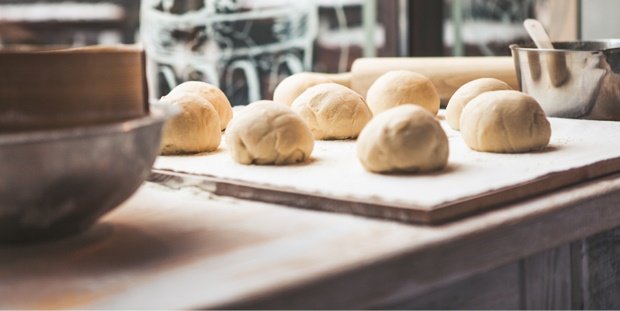I do not know of a single person who dislikes pasta and this is why finding out that pasta is, in fact, the world’s favourite food came as no surprise to me.
The Italian staple graces the tables of both rich and poor, arguably, equally often due to its life-saving versatility. The carb-loaded, best-served al dente dish, has a place at almost every occasion and even though you enjoy and cook it so often, there are fundamental flaws, myths and tips that you should be aware of to ensure that you’re cooking your pasta the best way possible.
ALSO READ: 8 Tantalising pasta recipes that will remind you why you fell in love with Italian food
If you’re wanting to up your pasta game we’ve compiled the ultimate guide that will give you the full 411.
Salt
While the old wives tale that adding salt to your pasta water will make it boil quicker is a myth, this does not mean that you should stop salting your water altogether. The number one reason why enough salt needs to be added is to ensure tasty pasta. When your water is adequately salted, as the pasta boils and absorbs water, it will be salted from the inside out.
To rinse or not to rinse
This is probably one of the biggest debates when it comes to cooking pasta. Those who rinse, believe that’s the gospel and so do those who do not rinse. Technically no one is wrong. Kitchn notes that in some cases rinsing is necessary and in other cases not. What’s important to know is that the starchy film on the pasta is welcome in dishes that require sauce and is served hot as this will help the sauce to cling to the pasta. When you’re making a pasta salad, served cold, or a stir-fry with any Asian-type noodles, a good cold rinse will do.
Stirring is the gospel
Pasta does not take very long to cook so stay close to your pot and keep stir regularly to avoid clumps.
Oil
As long as you stir properly, loosening all the strands, there is no need for oil and you should actually not be adding oil to your water (at least that’s if you want to cook pasta like the Italians do). Once the pasta is cooked and drained then feel free to add some olive oil.
ALSO READ: The controversial chicken pasta recipe that has Facebook users up in arms
Al dente
Al dente literally translates to “to the tooth” in Italian and achieving this texture will mean that your pasta is still firm to the bite and not mushy when cooked. Never trust the recommended time on the package, always cook it for a bit less than required and make sure to check it regularly. Be especially careful when making stir-fries and dishes that call for pasta to be sautéed after cooking as pasta continues cooking a bit once drained from the residual heat and also when sautéed.
Easy steps to making fresh pasta from scratch
1. Combine salt and flour, place in a mixing bowl (or on a counter) and make a well in the middle. Break eggs into the well. Whisk eggs with a fork and gradually pull in flour from the flour well.
2. Once mostly mixed, transfer the dough to a wooden board and knead. Knead until the dough feels smooth, stretchy and elastic.
3. Roll in into a ball, cover with cling wrap and let it rest for about an hour in the fridge.
4. Divide the ball into smaller pieces and roll out on a well-floured counter.
5. You can now put it though a pasta-maker to make it thinner (if you have one) or just roll with a rolling pin.
6. Then pass through a pasta cutter or cut into the desired shaped.
(All images from iStock)
ALSO SEE: Complete homemade pasta recipe
Click HERE for Food24’s fabulously tasty pasta recipes!
Share your pasta making secrets and tips with us! Comment below or on Facebook | Twitter
Save

